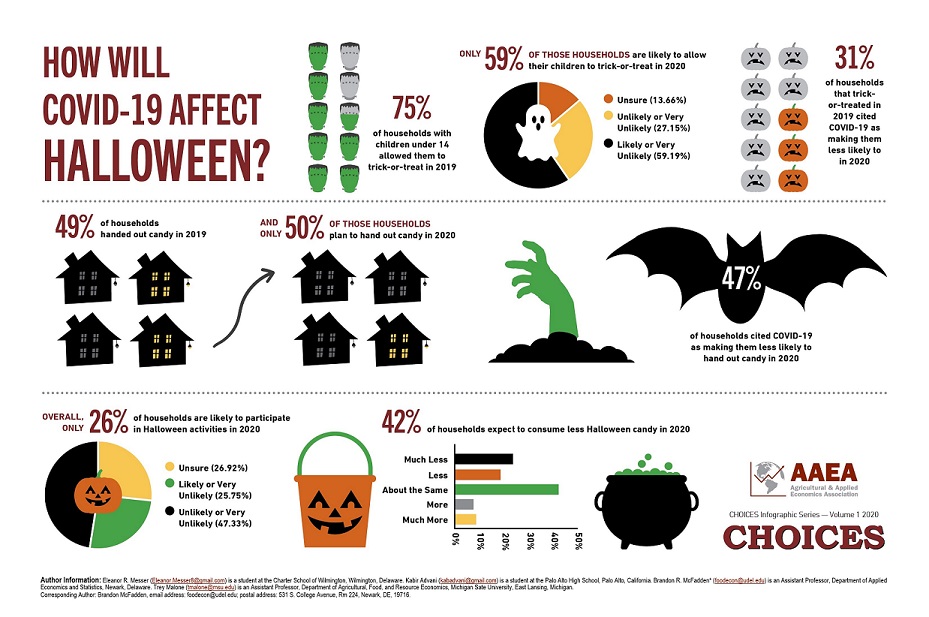
Eleanor R. Messer (Eleanor.Messer8@gmail.com) is a student at the Charter School of Wilmington, Wilmington, Delaware
Kabir Advani (kabadvani@gmail.com) is a student at the Palo Alto High School, Palo Alto, California
Brandon R. McFadden* (foodecon@udel.edu) is an Assistant Professor, Department of Applied Economics and Statistics, Newark, Delaware
Trey Malone (tmalone@msu.edu) is an Assistant Professor, Department of Agricultural, Food, and Resource Economics, Michigan Sate University, East Lansing, Michigan
Corresponding Author: Brandon McFadden, email address: foodecon@udel.edu; postal address: 531 S. College Avenue, Rm 224, Newark, DE, 19716.
Funding support was provided by the Center for Behavioral & Experimental Agri-Environmental and Risk Management Research (CBEAR) through the United States Department of Agriculture -- National Institute of Food and Agriculture, #2019-67023-29854.
Pandemic Consumer Food and Stigma Survey. October 2020.
COVID-19 disrupted food systems and travel plans. This is a unique time and it is not clear how holiday behavior will change due to COVID-19. The behavior during the holiday seasons is most likely going to be different in 2020 due to COVID-19, and these likely changes will affect the food system. This data visualization illustrates how the pandemic will affect typical Halloween behavior. The data used are from the Pandemic Food Consumer and Stigma Survey fielded by Qualtrics® from September 28-30. Data were collected from 2,043 U.S. respondents with an age ranging from 18 to 85 (average 44.9 years old), average income of about $55,000, and 52% of the respondents were female. The data indicate that trick-or-treating could be down approximately 41% for households with children under the age of 14 and nearly a third of those households claim that COVID-19 is a contributing factor in the decision not to trick-or-treat in 2020. Households handing out of candy may decrease by half in 2020 and approximately 47% of households are not likely to participate in any Halloween activity. Moreover, candy sales will likely decrease as 42% of households plan to consume less candy this year. These results suggest that year-over-year sales will be dramatically down in 2020.
